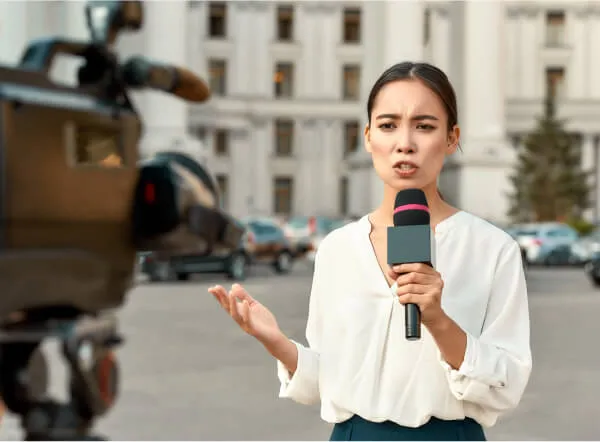Literary Composition

Literary composition refers to any piece of written material. Literary composers and creative writers often write for business, academic and artistic outlets. Read on to see if the skills and training required for this career suit your interests.
<h2 id="section---IsLiteraryCompositionAndCreativeWritingForMe">Is Literary Composition and Creative Writing for Me?</h2>
<h3 id="section---CareerOverview">Career Overview</h3>
<p>Literary composers and creative writers can be knowledgeable in many areas, including sales and marketing techniques, music, dance, drama, the visual arts, communications and media. Other important skills that literary composers and creative writers hone include an ability to manage time well, perceive social situations, think creatively, organize ideas and reason cogently. Writers often attempt to <a href="https://learn.org/articles/10_Ways_to_Become_a_Better_Writer.html">master</a> all the facets of their craft, including expression, grammar, style, mood, fluidity, revision, characterization, plot and dialogue. <a href="https://learn.org/articles/What_is_English_Composition.html">English literary composers</a> and creative writers must maintain a modicum of integrity, dependability, flexibility and persistence in order to adapt to new projects and succeed in their endeavors.
</p>
<h3 id="section---Specializations">Specializations</h3>
<p>Literary compositions can be categorized as poems, novels, television show scripts, songs, theater, librettos, operas, journalism, reviews, diaries, memoirs and biographies. Technical writers often focus more on specific technology- or science-related materials, such as manuals or textbooks.
</p>
<h3 id="section---EmploymentInformation">Employment Information</h3>
<p>According to the U.S. Bureau of Labor Statistics (BLS), the median wage for creative authors and writers was $57,750 as of May 2013 (<i>www.bls.gov</i>). Authors and writers can expect a job growth rate of 3% across the 2012-2022 decade. The median wage for <a href="https://learn.org/articles/Technical_Writing_5_Steps_to_Becoming_a_Technical_Writer.html">technical writers</a> was $67,900 in the same year. Technical writers can expect a job growth rate of 15% across the same time frame, a rate the BLS considers to be faster than the average.
</p>
<p>Technical writers may find employment with scientific and professional service firms and data processing services. Other literary composers and creative writers might work for newspapers, advertising services and book publishers. Additionally, many writers do freelance work, meaning they are paid by the assignment.
</p>
<h2 id="section---HowCanIWorkInTheFieldOfLiteraryCompositionAndCreativeWriting">How Can I Work in the Field of Literary Composition and Creative Writing?</h2>
<h3 id="section---Education">Education</h3>
<p>To prepare for postsecondary education and an eventual career in this field, you might enroll in English, speech, art, history and computer science courses while still in high school. Depending on whether you want to write fiction or non-fiction, you could enroll in a <a href="https://learn.org/articles/English_Bachelors_Degree_Program.html">bachelor's degree program in English</a>, focusing on rhetoric and composition, or in <a href="https://learn.org/articles/Creative_Writing_Bachelor_Degrees_Online_and_Campus-Based_Program_FAQs.html">creative writing</a>. You may want to pursue a <a href="https://learn.org/articles/What_is_the_Main_Difference_Between_an_English_Degree_vs_a_Journalism_Degree.html">degree in journalism</a> if you would like to write for a newspaper. Common classes offered at the undergraduate level in each of these programs include major works in the literary arts, literary theory, composition, analysis and electives in overlapping subjects, such as film or gender studies and linguistics.
</p>
<p>Many prospective literary composers and writers go on to pursue a <a href="https://learn.org/articles/English_Masters_Degree_Your_Career_and_Salary_Questions_Answered.html">master's degree in English</a> or a <a href="https://learn.org/articles/Creative_Writing_Graduate_Programs_Your_Questions_Answered.html">Master of Fine Arts (MFA) in Creative Writing</a>. MFA courses often allow you to focus on your choice of prose or poetry while taking some electives. Other requisites for graduation include student teaching and the development of a thesis. For creative writers, MFAs offer many opportunities for getting published in a literary journal, which can help your career and may lead to further publications or book deals.</p>


.svg)